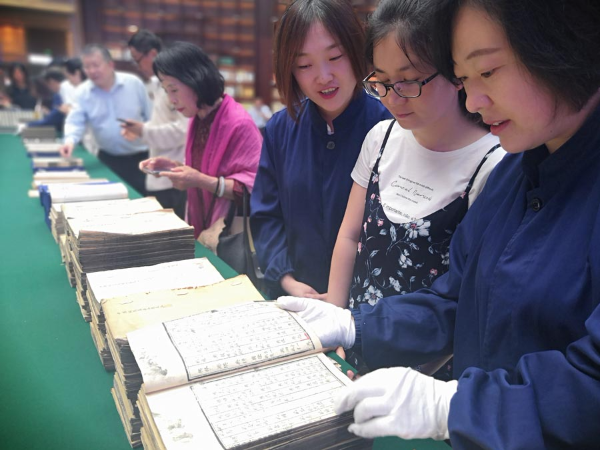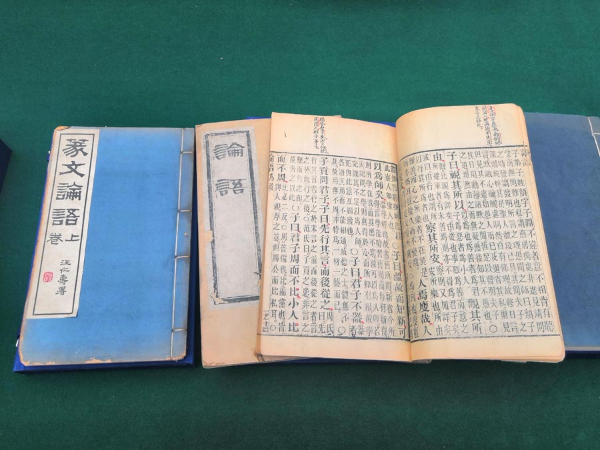Bringing the classics back to life
To revive a long-lost tradition, the National Library of China has teamed up with the Confucius Museum to host a book-sharing conference in Qufu.
When it comes to celebrating Qixi Festival, or Chinese Valentine's Day, certain traditions usually spring to mind. While exchanging gifts and spending time with loved ones are common themes, in ancient times another custom was widely practiced: leaving books outside the main doors of houses to air and share them. It was forgotten in recent years.

In ancient times, books were a valuable commodity that was kept under lock and key. While this habit helped preserve them, books could just as easily fall prey to mold, dampness or bookworms — and so the practice of airing them every summer took hold.
During the Northern Wei Dynasty (386-534), agriculturalist Jia Sixie described how people followed this practice in Tian Gong Kai Wu, one of China's earliest and most comprehensive agricultural records.
But just as the word shai, which means "bask in the sunshine", also has the meaning of "showing off" in modern Chinese, the tradition of showing and sharing books was later adopted.

"Originally, the custom was not specifically carried out on Qixi, but it always took place in the hot summer months. Since Qixi happens to fall during this period, people started to show off their books during the festival," says Zhang Zhiqing, deputy director of the National Library of China.
In keeping with this tradition, the National Library of China has teamed up with the Confucius Museum in Qufu, a county-level city in East China's Shandong province, to organize the first Chinese Traditional Book Sharing Conference. Opening on Aug 7, the day of this year's Qixi Festival, the conference and related book sharing events will run through Sept 6 at venues located across the country.
A day ahead of the event's national launch, a number of precious ancient books went on display at the Confucius Museum in Qufu, including The Analects of Confucius, documents kept by the Kong family and rubbings from ancient stone inscriptions.
Wei Li, a bibliophile based in Beijing, says he was most impressed by a set of rubbings of 13 Confucian classics carved in stone under Emperor Qianlong's (1711-99) reign in the Qing Dynasty (1644-1911). "They are precious not only because they may have been given to the Kong family by the emperor, but also because they show some royal techniques never seen in folk art," says Wei.

